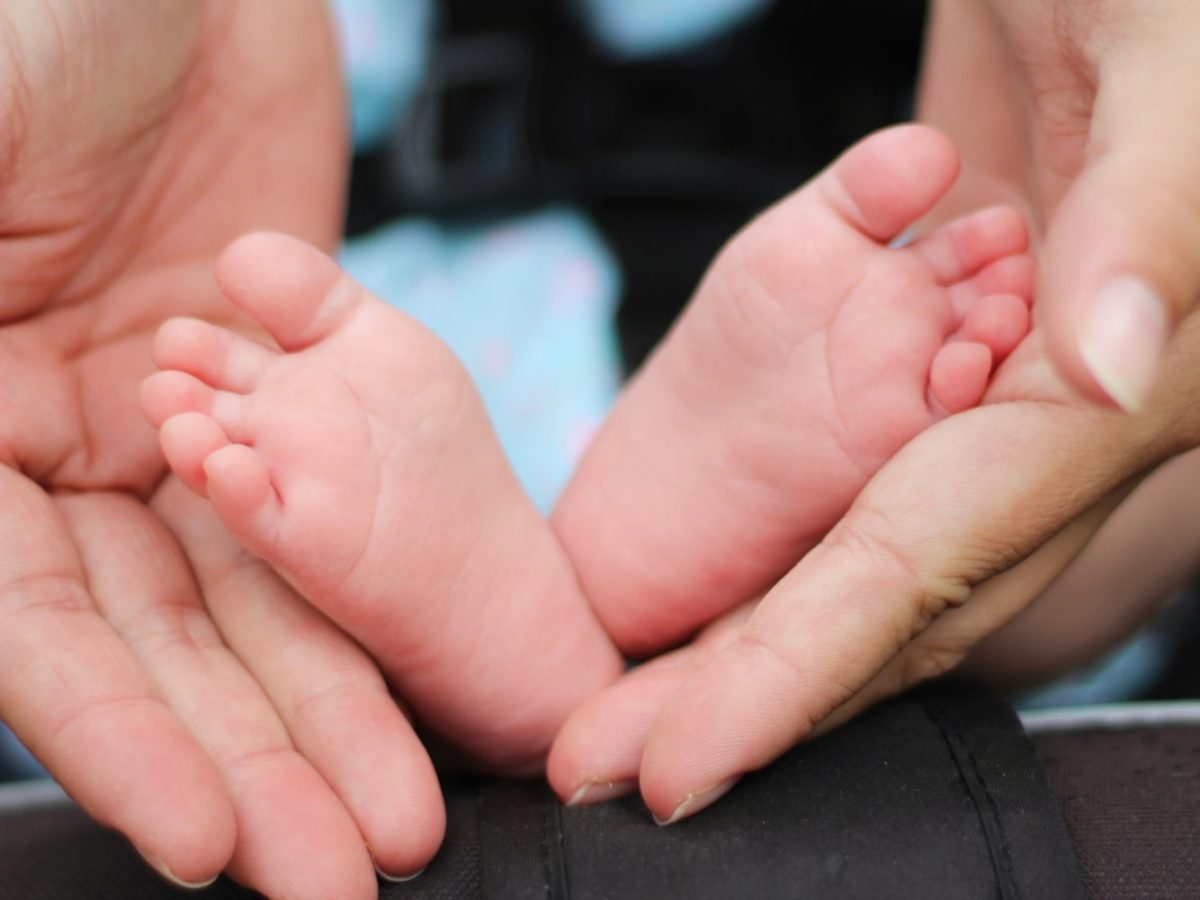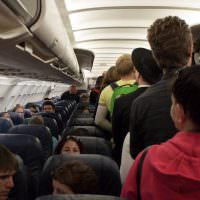How becoming a parent can influence or even result in a fear of flying…
Becoming a parent is perhaps one of the most wonderful and transformative experiences that a person can have in their lifetime. So much of the transformation is positive, but when you become a new mom or dad, there are some strings attached. Many people soon realize that their perception of the world and how they react to it has changed. This often comes in the form of certain fears or anxieties that are difficult to explain, and that might not have been there before. There are many reasons for this change.
 Suddenly, a little bundle of joy has entered your world. That baby boy or girl is beautiful, amazing, and nothing short of a miracle…and is completely dependent upon you. It’s a 24/7 job. All of a sudden, we realize that the survival of another person is totally our responsibility. In the same breath, we also recognize just how vulnerable a baby can be.
Suddenly, a little bundle of joy has entered your world. That baby boy or girl is beautiful, amazing, and nothing short of a miracle…and is completely dependent upon you. It’s a 24/7 job. All of a sudden, we realize that the survival of another person is totally our responsibility. In the same breath, we also recognize just how vulnerable a baby can be.
All of this comes together in our minds and effectively highlights our own vulnerabilities and mortality. So, we have to take care of this new little person. That’s a big deal. Additionally, we now have to worry about our own survival because the life of another person depends on it. These feelings can influence us in a variety of ways. A notable example would be our preference to actively try and assess and manage risks throughout our daily lives. Ordinary tasks that were previously considered to be mundane or risk-free, now receive greater scrutiny. If we perceive something to carry more risk (like flying on an airplane), it will often cause us to feel some degree of anxiety or angst. This can be a conscious or subconscious reaction as we try to reconcile an activity with our ability to survive and care for a child.
For some, the act of flying was risky even before having children, so let’s contrast this with an arguably less contentious environment: the home. Prior to having a child, few of us ever thought about our homes as anything other than an incredibly safe and comfortable place. Suddenly, with the birth of a child, we become obsessed about addressing all the potential dangers within our house. This is the kind of change that you might undergo after becoming a parent. Many of the things that were seemingly harmless or benign have become “risky” or unsettling. When it comes to flying, this is often manifested in a new or increased fear of flying.
In addition to becoming preoccupied with our own mortality and the risks that we face, we may also become more focused on what’s going on in the lives of others. If we are traveling, then we aren’t physically present to protect or care for our child. This can result in all sorts of negative emotions that serve to exaggerate or increase our fears. Overall, it can be a lot to take on.
To better understand how to overcome all of these changes and what we feel, you may have to take a different approach. We essentially need to re-learn some things. What do I mean by this? Well, psychologically, it’s far easier for us to be dismissive of sensations we encounter when doing something that is familiar. For most people, driving over a bump in the road can be quickly brushed aside as nothing out of the ordinary or to be concerned about. We’ve done it a thousand times and have been conditioned to realize that it’s not a threat or a cause for worry.
However, the act of flying is less common to begin with, and at the same time it is conceptually unique and not as well understood by most people. All of this contributes to a more heightened state of alertness and a general feeling of unease or anxiety that only gets worse after becoming a new parent. In effect, our understanding and comfort with flying has been reset back to a point where it is almost as if we had never flown before. And this is exactly how you have to view the act of flying after the birth of a child. It may sound a bit crazy, but you may need to re-educate yourself on the whole experience of flying.
I’ve encountered a number of people, including friends and family, who never had any issues with flying, but the birth of a child changed that. Suddenly, people who had spent much of their lives around airplanes didn’t feel very comfortable with flying. It often comes as quite a surprise, but it’s pretty common. Fortunately, it’s not permanent.
 For many people, the bulk of these feelings or concerns will simply fade with time. As the years go by, our understanding and perception of risk and the vulnerability of our kids (and ourselves) will shift. We begin to realize that our kids are able to do more and more without us and that they are not the fragile mink vase that we thought they were. In the near term, try to approach flying in the same way that you would coach your child. Mentally talk yourself through the entire process, highlighting every step of the way from the time that you arrive at the airport until you land at your destination. In your mind, attempt to revisit the sights, sounds, and sensations that you will experience along the way. It’s a means of re-familiarizing yourself with the whole experience, so that it is no longer perceived as something new or risky. All of this may take some time, but the more that you do this, the more quickly you will progress.
For many people, the bulk of these feelings or concerns will simply fade with time. As the years go by, our understanding and perception of risk and the vulnerability of our kids (and ourselves) will shift. We begin to realize that our kids are able to do more and more without us and that they are not the fragile mink vase that we thought they were. In the near term, try to approach flying in the same way that you would coach your child. Mentally talk yourself through the entire process, highlighting every step of the way from the time that you arrive at the airport until you land at your destination. In your mind, attempt to revisit the sights, sounds, and sensations that you will experience along the way. It’s a means of re-familiarizing yourself with the whole experience, so that it is no longer perceived as something new or risky. All of this may take some time, but the more that you do this, the more quickly you will progress.






